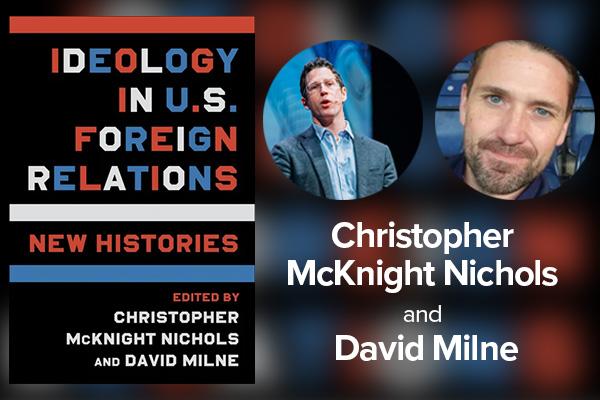
The U.S. is a nation born out of revolutionary democratic ideas, so it should follow that ideas are and have been crucial to the construction of American foreign policy. But which ones, how, and when?
Some politicians and diplomats have rejected ideology; some scholars have argued against an ideological approach to understanding U.S. foreign relations. And yet racialized notions of subjecthood and civilization underlay the political revolution of eighteenth-century white colonizers; neoconservatism, neoliberalism, and unilateralism propelled the post–Cold War United States to unleash catastrophe in the Middle East. Ideologies, according to Christopher McKnight Nichols and David Milne, order and explain the world, project the illusion of controllable outcomes, and often explain success and failure. How does the history of U.S. foreign relations appear differently when viewed through the lens of ideology?
In an ambitious multi-year, multi-national project, Christopher Nichols, the new Wayne Woodrow Hayes Chair in National Security Studies at the Mershon Center, and Professor of History, along with University of East Anglia Professor of History David Milne, have worked with over two dozen prominent historians of U.S. foreign relations to address these and related questions drawing on cutting-edge new research—the result is their just-published book Ideology in U.S. Foreign Relations: New Histories, published by Columbia University Press.
Reviewers applaud how the book moves “far beyond a traditional framing of diplomatic history,” heralding the book as “highly original and compelling” unlike anything else in the field, and as a “field-expanding book will have an enduring impact on teaching and writing in foreign relations history.”
In the book’s official launch, hosted by the Mershon Center for International Security Studies, Nichols and Milne will present key findings from the book and then have a moderated discussion with Mershon Center Director Dorry Noyes and the audience about how ideas and ideology drive and have driven American foreign policy in ways seen and unseen, past, present, and future.
